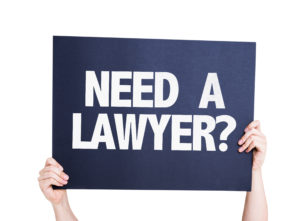
The Virginia State Bar Association’s Standing Committee on Legal Ethics has released for public comment proposed amendments to its state’s lawyer advertising rules. See Va. Bar Assoc. Standing Cmte. on Legal Ethics, Proposed Amendments to Rules 7.1-7.5 (Sep. 20, 2016).
The committee’s proposal streamlines the regulations “to a single statement that communications about a lawyer’s services may not be false or misleading.” Regulations relating to claims of specialization and the content of firm names are addressed by comments “since they are just specific examples of the general obligation not to make false or misleading statements.” Likewise, the committee deleted the required disclaimer for statements of case results, “again shifting to a general false or misleading standard rather than a mandatory technical requirement.”
According to the committee, these proposals “largely derive from a report and recommendation issued by a committee of the Association of Professional Responsibility Lawyers (APRL) describing the need to simplify and modernize lawyer advertising rules in light of changes caused by the rise of internet marketing and communications, and in light of increasing concern about the viability of constitutional or antitrust challenges to advertising regulations.” The committee cited several other reasons for the proposed amendments:
- “Many advertising rules were developed in a time when print advertising was primary, and as a result are unwieldy or impractical when applied to now-common internet communications. For example, the requirement that a disclaimer must precede each statement of case results makes it impossible to ever mention a case outcome on Twitter, because the disclaimer alone would exceed the character limit of a Twitter post.”
- “The cross-border nature of internet communications also raises difficult issues, as advertising rules vary greatly from state to state and lawyers often find it impossible to comply with all the rules that could possibly apply to their communications.”
- “[T]he majority of complaints about lawyer advertising come from competing lawyers and involve technical rule violations; consumer complaints about lawyer advertising are rare, and when they are made, generally involve communications or conduct that are clearly false and misleading.”
- Restrictions on speech are “particularly vulnerable when there is a lack of empirical support for the necessity of the restriction.”
- The SCOTUS decision in North Carolina State Board of Dental Examiners v. F.T.C., 135 S. Ct. 1101 (2015), has “raised concerns for regulators about the possibility of increased antitrust scrutiny of regulatory actions, particularly if it appears that the regulation is being carried out by lawyers with a competitive interest in the market.”
Should Louisiana Simplify its Advertising Rules?
In 2008, the Louisiana Supreme Court adopted some of the most complex and indecipherable advertising rules in the country. Have these rules—which were the subject of costly federal litigation ultimately funded by us (Louisiana lawyers)—proven to be worth it? To rip off an old campaign speech, it might be well if we would ask ourselves this: Are we better off now than we were eight years ago? Are prospective clients better informed? Are lawyers’ advertisements “better”? Are Louisiana lawyers more respected?
In my view, the answer to all of these questions is “no.” As Virginia has begun to recognize, lawyer-advertising regulations should simply ensure that lawyers don’t deceive or coerce prospective clients. Those laudable goals are best accomplished with simple rules prohibiting false and misleading communications, and prohibiting in-person solicitation. For that reason, the labyrinthine regulations contained in the current Louisiana rules should be junked.
